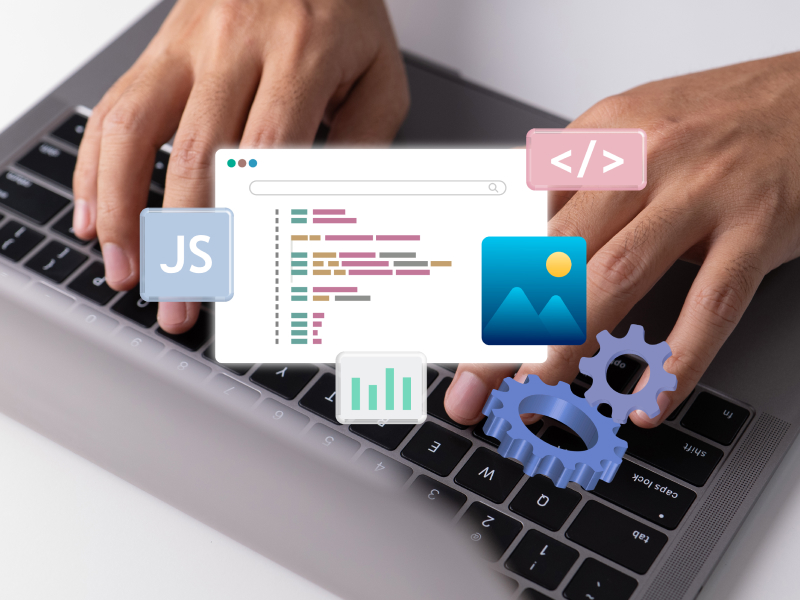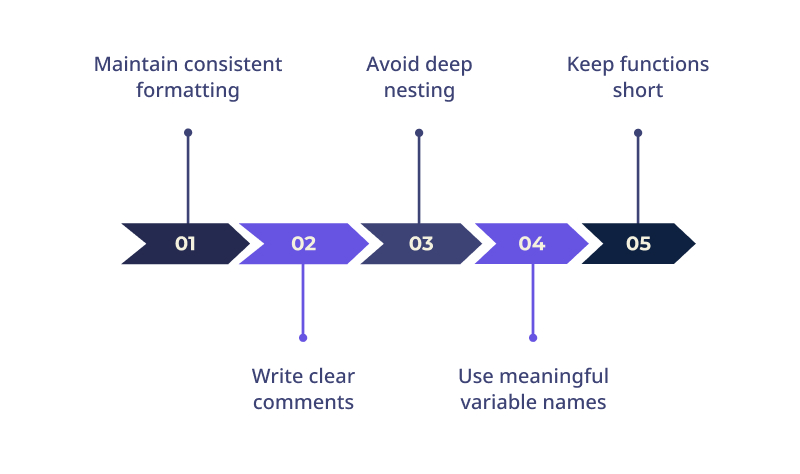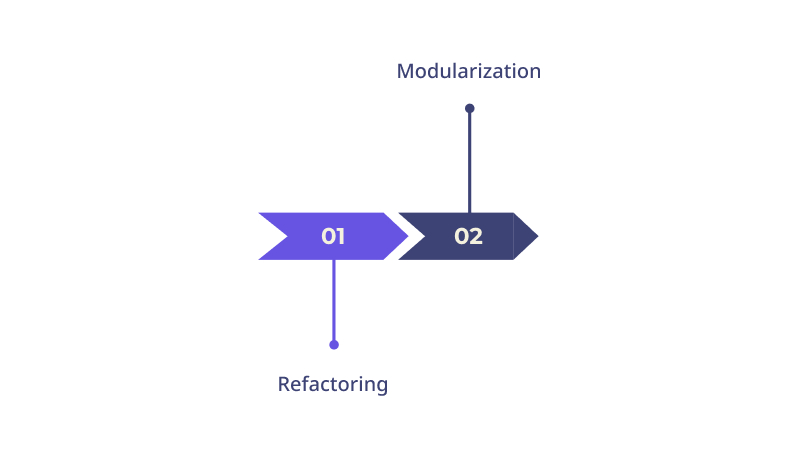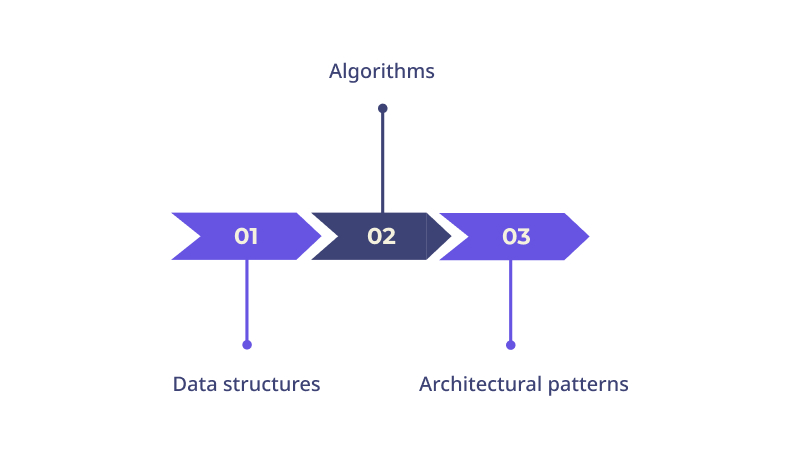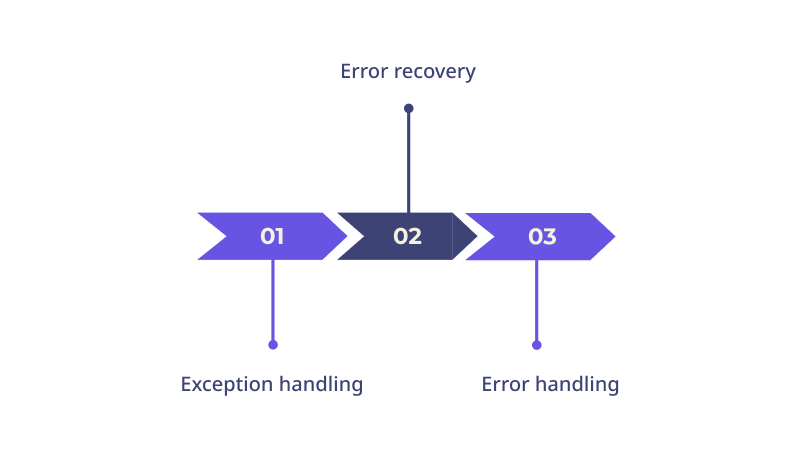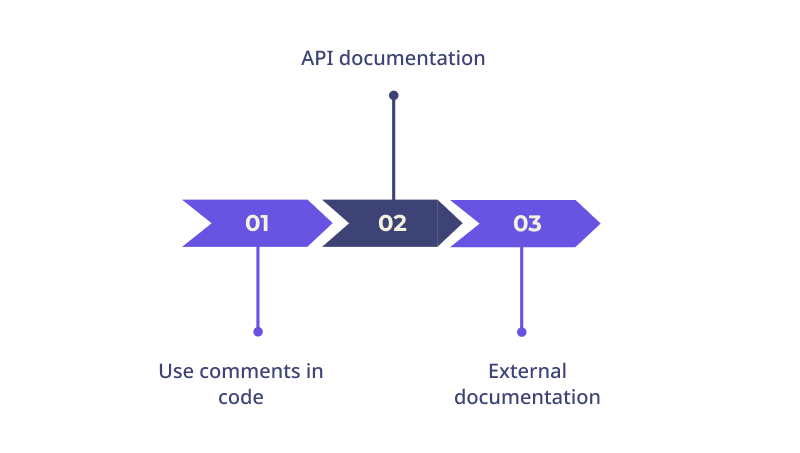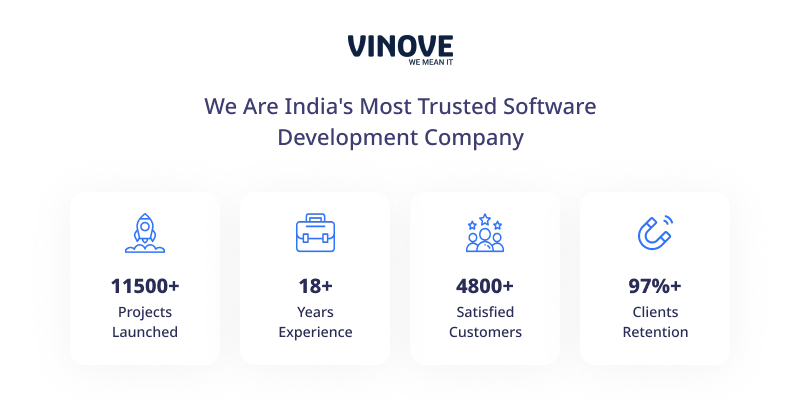Crafting clean, efficient, easily maintainable code is not just a valuable skill, but it has become an essential requirement of today’s time. It is the secret ingredient that distinguishes good programmers from exceptional ones.
Whether you are taking your first steps as a novice in the expansive field of programming or a seasoned web developer, this blog post is your go-to resource to master the art of writing clean and maintainable code.
Here, you will learn how to write maintainable code that works flawlessly and is a joy to read and comprehend.
Challenges Developers Face in Achieving Their Goal
Developers often face some challenges in achieving their goals. Here is a detailed explanation of the top 5 challenges and how to overcome them:
Readability
Readability is the ease with which a developer can understand and follow the code. It is a crucial coding aspect, allowing other developers to understand, modify, and maintain the code.
How is it a challenge?
Poor readability can lead to confusion, misinterpretation, and errors. It will ultimately disturb the maintainability of code.
The question arises: How to write good code?
Hence, developers should use clear and descriptive variable names, maintain a consistent coding style, and use comments to explain complex code sections.
Code Duplication
Code duplication is a common issue in software development. It occurs when similar code blocks appear in multiple locations. It is also known as “code cloning” or “copy-pasting”.
How is it a challenge?
Code duplication leads to bloated, difficult-to-maintain code & increases the likelihood of bugs.
Developers must strive to use the DRY (Don’t Repeat Yourself) principle to avoid such issues. This mainly includes abstracting common code into reusable functions or modules, which can be called whenever needed.
Scalability
Scalability is the ability of a system to handle increased loads efficiently. When a software product grows, it may need to handle more users, data, and complex operations.
How is it a challenge?
If the code is not designed keeping scalability in mind, it can become slow, unreliable, or even crash under heavy loads.
Now the question is: How to write better code?
Developers should consider potential future growth and use efficient algorithms/data structures to write scalable code. They should also use load balancing, caching, and other techniques to distribute the load.
Error Handling
Error handling responds to and recovers from error conditions in the code. It ensures your software behaves predictably and robustly, even when things go wrong.
How is it a challenge?
Poor error handling can lead to crashes, data corruption, and security vulnerabilities.
Developers should use try-catch blocks to catch and handle exceptions, validate input data to prevent errors, and use logging to record errors for later analysis.
Documentation
Documentation is defined as the written text that accompanies & explains your code. It is an essential tool for understanding how the code works, how to use it, and how to maintain it.
How is it a challenge?
Poor documentation can make it difficult for other developers to understand and work with your code, leading to confusion and mistakes.
Now the question is: How to write clean code?
Developers should write clear, concise comments explaining the purpose and functionality of each section of code to create effective documentation. They should also create user manuals, API guides, and other documents to help users understand the software.
Tips For Writing Clean and Maintainable Code
Writing clean and maintainable code is an art that every developer should master. It makes the code easier to understand and debug and ensures that other developers can easily update and maintain it.
Here are five expert tips to help you craft clean and maintainable code.
Tip 1: Prioritize Readability
Readable code is self-explanatory, reducing the need for extensive documentation and making it easier for other developers to work on the project.
Tips for improving code readability
- Using meaningful variable names that reflect their purpose
- Maintaining consistent formatting throughout the code
- Writing clear comments that explain complex code sections
- Avoiding deep nesting by using clean programming language
- Keeping functions short and focused as it enhances readability
At Vinove, our developers have expertise in coding, being it simple to complex. We use comments for complex sections with a clear and consistent coding style.
Tip 2: Eliminate Code Duplication
Code duplication makes the code harder to maintain, increases the likelihood of bugs, and makes the codebase larger and more complex than necessary.
Techniques like refactoring and modularization can help identify and eliminate code duplication. Refactoring involves changing the code structure without altering its behavior, while modularization involves breaking the code into smaller, reusable modules.
Vinove’s developers regularly refactor the code and use modularization to eliminate duplication, ensuring the code is clean, efficient, and maintainable.
Tip 3: Focus on Scalability
Writing scalable code can be challenging. It requires foresight and planning to ensure the code can handle increased loads and be easily extended with new features.
Choosing appropriate data structures and algorithms is crucial for scalability. The right architectural patterns, such as microservices or event-driven architecture, can enhance scalability.
Vinove developers understand the importance of scalability and use appropriate data structures, algorithms, and architectural patterns to ensure the solutions can handle future growth and changes.
Tip 4: Handle Errors Effectively
Effective error handling is crucial for code reliability. It ensures that the code can handle unexpected situations gracefully and continue to function correctly.
Proper exception handling, error recovery, and informative error messages are essential for effective error handling. They help identify and resolve issues quickly and prevent them from causing further problems.
Vinove’s experts excel in identifying and resolving potential error scenarios. We use robust error-handling techniques to ensure the code is reliable and resilient.
Tip 5: Document Your Code
Comprehensive code documentation is essential for maintainability. It provides a clear understanding of the code’s functionality and design, making it easier for other developers to work on the project.
Code documentation includes comments within the code, API documentation describing how to use it, and external documentation providing an overview of the code and its architecture.
Vinove developers document their code meticulously, ensuring that anyone working on the project can understand the code and its purpose.
Have a Development Project in Mind? Partner with Us
With years of experience and a team of highly skilled developers, Vinove has established itself as a leading player in the coding industry.
But what sets us apart? Why should you choose Vinove for your coding needs?
The answer lies in our commitment to delivering clean and maintainable code.
- We have 18+ years of experience and a team of highly skilled developers.
- We are known for our expertise in crafting clean and maintainable code.
- We understand the importance of writing functional and easy-to-read and maintain code.
- Our experts follow best practices in coding to ensure efficiency and readability.
- Every line of code Vinove’s experts write is designed to withstand the test of time and be easily scalable.
- Choosing Vinove means partnering with a coding company that prioritizes quality and long-term sustainability.
- We are capable of transforming your ideas into robust and scalable solutions.
- Vinove is a reliable choice for any coding project, regardless of size or complexity.
Conclusion
Developers are often stuck with questions like what is writing complex code and how to write clean code.
By practicing the expert tips discussed in this blog post, developers can elevate their coding skills and take their projects to new heights.
Remember, writing clean code using a clean programming language is not just about following a set of rules; it’s a mindset that values clarity, efficiency, and long-term sustainability.
So, embrace the art of crafting clean and maintainable code, and watch as your software becomes a masterpiece of elegance and functionality. Enjoy coding!


